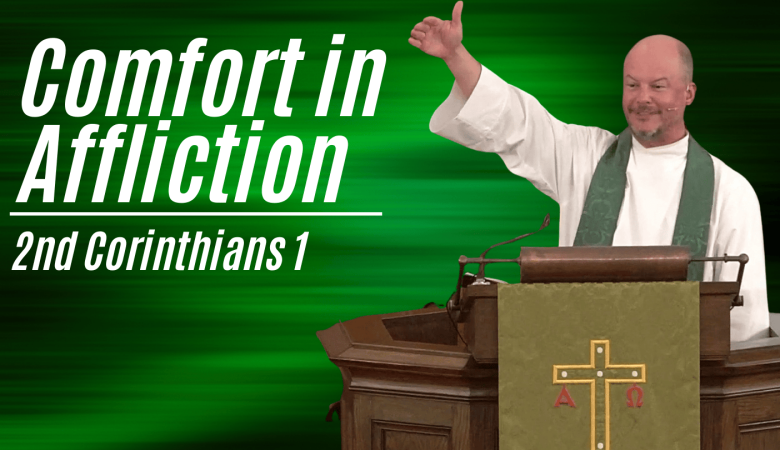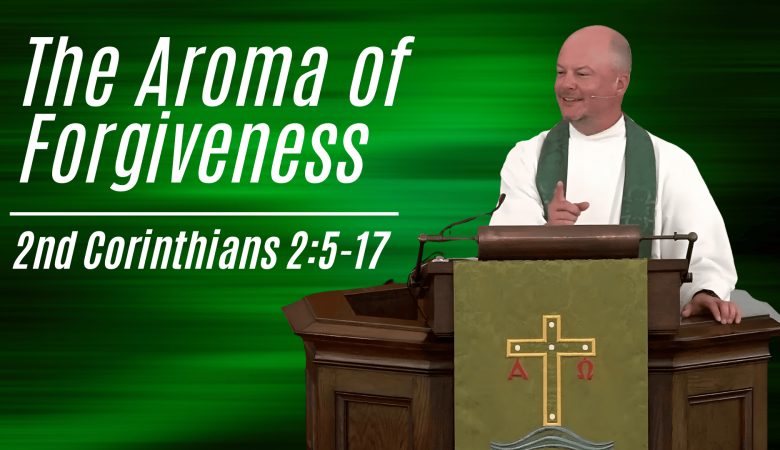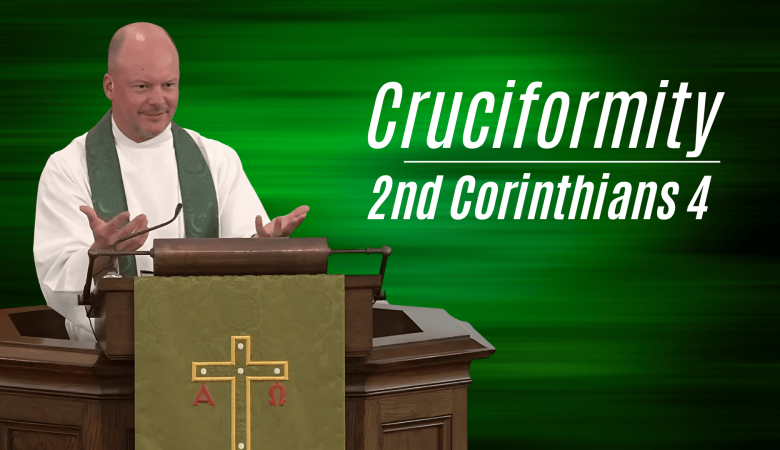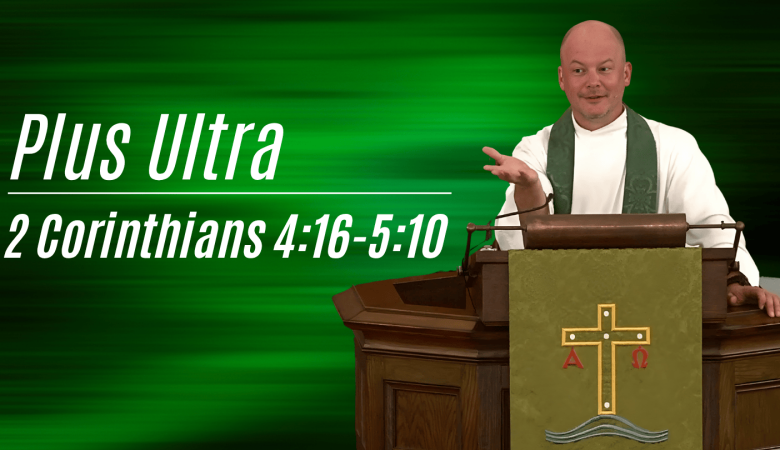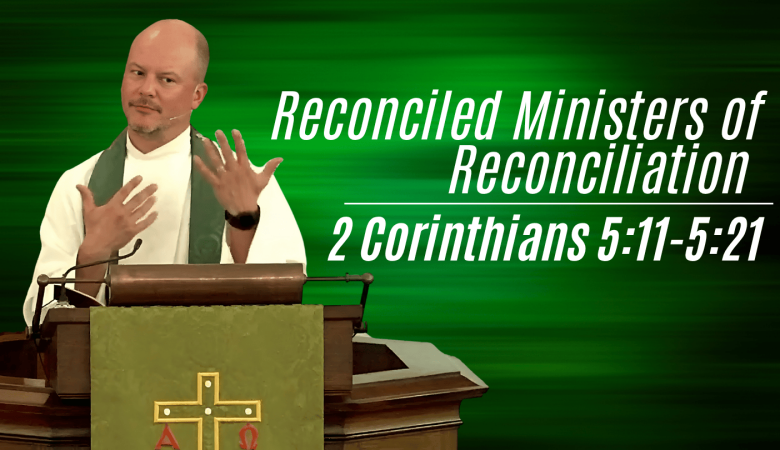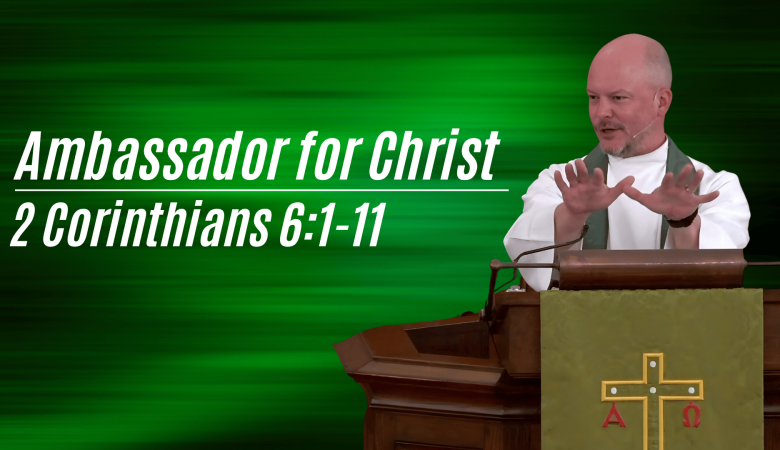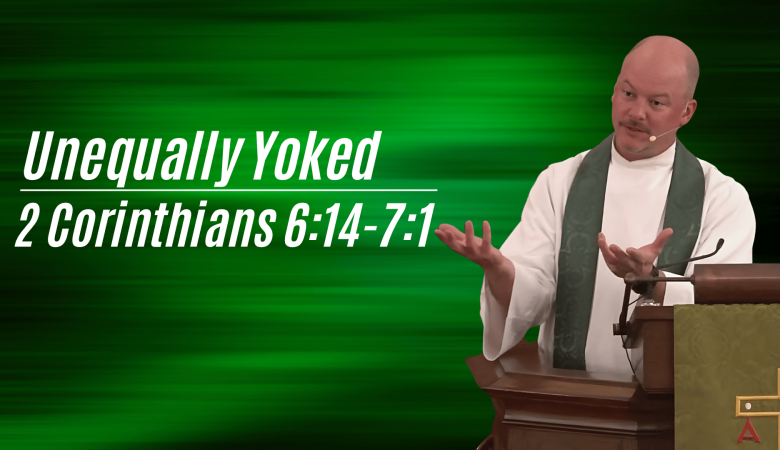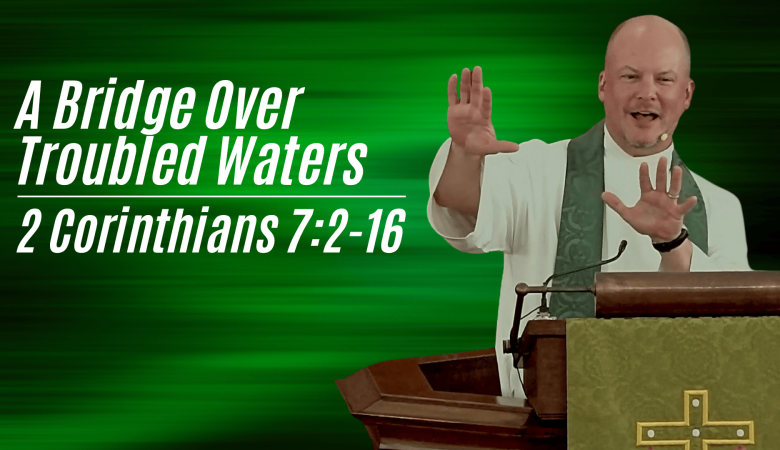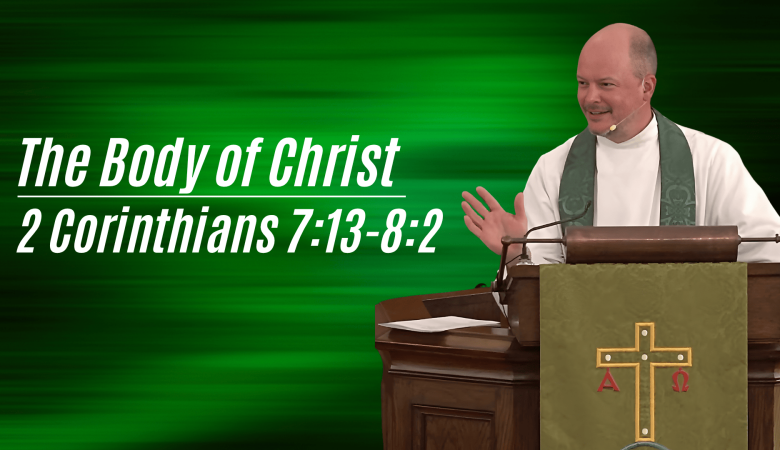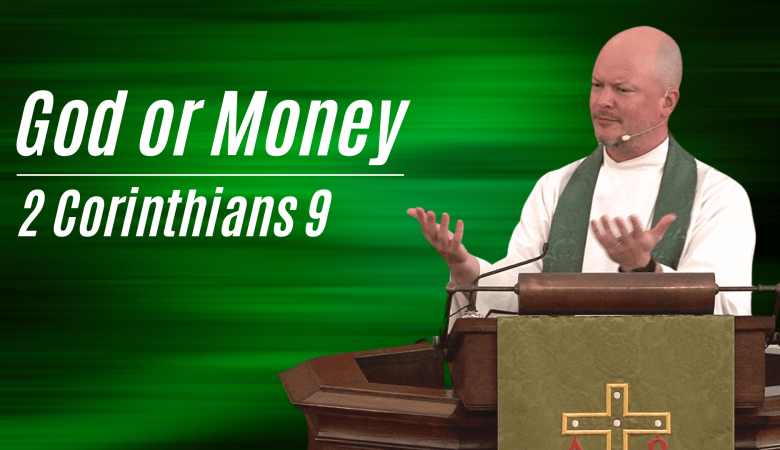Series: Power in Weakness
The Spirit's Letter of Recommendation
September 14, 2025 | Peter Rowan
Passage: 2 Corinthians 3:1-18
Summary
In 2 Corinthians 3, Paul draws a profound distinction between two approaches to faith - the letter that kills and the Spirit that gives life. This isn't merely a temporal distinction between Old and New Testament, but a spiritual transformation that changes everything about our relationship with God. Paul references the story from Exodus where Moses received the commandments on stone tablets and later wore a veil to cover his face that shone with God's glory after meeting with Him. Paul explains that one can possess all the external markers of faith - being a preacher, elder, regular worship attender, theological knowledge, Bible reading, and ministry involvement - yet still operate under the Old Covenant of the letter rather than the New Covenant of the Spirit. The law itself was glorious, but when received without a transformed heart, it only brings death and condemnation. Throughout Scripture, we see people who possessed God's law yet missed God Himself, resting on external things like temple worship, Abrahamic lineage, or circumcision while their hearts remained far from God. The evidence of living by the Spirit rather than the letter is seen in our love for Jesus, gratitude for His death on the cross, growing awareness of our need for grace, love for Christ's church, and genuine desire to put sin to death and live righteously. The invitation is to move beyond external religious forms to experience the transforming power of God's Spirit writing His law on our hearts - the essence of the New Covenant.
Transcript
Opening Prayer
Great God, thank you for your holy word. Thank you for these texts, particularly from 2nd Corinthians, chapter 3. But the beauty that is your word. Psalm 32 and Ezekiel 11, and Mark chapter 7, and all of these in many regards, speaking of these same truths. Lord, thank you for the gift of its reading. Thank you for the gift of its preaching. God, I pray for each one of us that we would be attentive this morning to what you would have to speak to us, Lord. Speak. Your servants are listening. In Jesus name. Amen.
Introduction: Thomas Chalmers
All right, so this morning in our adult Sunday school class, well, what we're doing is we're inviting different people in the church. And I would encourage you, if you care, to do. This would be a gift to all of us to share some of the heroes of the faith that have gone before us in church history with one another. So I got to do that this morning.
And we were looking at the life and legacy of a man who many consider to be the greatest, or at the very least, it's unquestionable that he is among the greatest scotsmen of the 19th century. Thomas Chalmers. Chalmers served in many, many ways, many different educational posts at St. Andrews a couple times and in Edinburgh he was the president for the Royal Society of Edinburgh, which is Scotland's national society for science and letters.
I mentioned that the University of St. Andrews had to twice enlarge in a lecture hall for the lectures he was giving on mathematics. They were so invigorating. Wish I would have had him as my math teacher. He was also the professor of moral philosophy. He gave lectures on political economy, on economics.
When he was the pastor of the Great Tron Church in Glasgow, he started a midweek study for businessmen in the area there in Glasgow to gather together and to think of the things of God. And he thought of all places. Let's start with Christianity and astronomy. That makes a lot of sense. Right. His first lectures were on astronomy and actually those lectures were published and remarkably that year they were published eight more times. They went through nine printings that year. They outsold in that year the combined works of both Jane Austen and Sir Walter Scott. Lectures on Astronomy.
There's zero question he was one of the great thinkers of the day with regards to poverty, particularly among in the cities for how do we care for the poor? While he was the pastor of the Great Tron Church in Glasgow, he was there for five years and then there. There was the massive influx of people for the coal and the textile industry in the south of Scotland, as was the case in Other parts of the world, including our own country, there was this huge industrial revolution was taking place and all these people were flocking into cities and there was great poverty. And he looked out upon one of the most poverty stricken areas of Edinburgh, St. John's parish, and he petitioned, can I start a church there? And while he was there planting that church and caring for that, the city's expense that they gave to the care of the poor was diminished to one fifth of what it was before. Because the church was so active in caring for the poor. It was said, I read that there were 50 different Sunday schools going on, largely teaching people how to read, how to brush their teeth, but also the great faith of Christ's cross and resurrection.
Thomas Chalmers taught many of the great pastors and hymn writers of the 19th century. You can think of Horatius Bonar or Andrew Bonar, or you can think of Robert Murray McShane. Some of you use his Bible reading program to direct your Bible reading. Throughout the year he taught some of the great professors that would come after him. One of the great Old Testament scholars in Scotland in the latter part of the 19th century was John Duncan, who had the nickname Rabbi, even though he was Scottish, because he so knew and loved the things of the Jewish people. Rabbi Duncan, a lot of people attribute to Thomas Chalmers really the beginning of the great missions movement that began in the 19th century. David Livingston coming out of that movement. But the Scots at that time, and largely under the leading of Thomas Chalmers, were the great missionaries of the 19th century, going out into the world and telling people about Jesus.
Chalmers' Early Life and Transformation
I could keep going because by all accounts this was a great man who did great work for the Gospel of Christ in the world. And yet here's where I want to go with this. And yet early on in his life, early on in his career, there's zero question that he had little concern for the people under his care. He would say the same thing. The first pastorate that he had was in this small Fifeshire town of Kilmeny, which is not too far from St. Andrews. And he would spend all of Monday through Friday there in St. Andrews giving lectures on math and other things. Well, until he came at odds. He was an assistant, he was a lecturer there at the university, and then the, the main math professor. And he had it out because they were both hot heads. And so he started lecturing on math at just a town hall and all the students actually went to his lectures. He was rather full of himself and he thought he didn't really need to care for his flock.
And until there was a massive transformation in his life. One year actually. So one year his uncle and his beloved sister both died. And then he self published a book that got no attention at all. The title of that book is Inquiry into the Extent and Stability of Natural Resources. Invigorating. It was an analysis on some of Napoleon Bonaparte's commercial policies. The stuff that puts you to bed, probably like our book of Church Order, which is so helpful. Anyway, he was so discouraged by that and so distraught over the passing of his loved ones. And then he got consumption and actually spent about six months in bed.
And it was through this dynamic of being humbled and then also coming face to face with the reality that we may be able to, we may have to give an account at any moment to Christ for what we did in this body, that his life could be taken from him at any moment. That the Holy Spirit so worked in him that he came back from that deathbed. And everybody knew he was a changed man. I mean the Holy Spirit had entirely changed him. He went from kind of never seeing his parish, not having a care of the world for them, spending all of his time over in posh St. Andrews, to devoting himself to the ministry there in Kilmeny. And the doors were bursting at the seams for people to come and to hear Thomas Chalmers preach. He went on of course, to have this remarkable ministry and all these other kinds of ways.
But he wrote at that time in his journal, he said, oh God, make me feel the firmness of the ground I tread upon and enable me to, to give all my mind to thy word. Above all, may I never recede by a single inch from my Savior.
Transition to Scripture: 2 Corinthians 3
Now the end of 2 Corinthians chapter 2. Last week we didn't talk about this last verse, but it ended like this. For we are not like so many peddlers of God's word, but as men of sincerity, as commissioned by God in the sight of God. We speak Christ and we pick up in chapter three. And it begins with this distinction between the peddlers of God's Word, which happens a few times in second Corinthians chapter three. And a Christ centered sort of Spirit filled ministry.
This is how it begins. Second Corinthians chapter three. Actually, let me find it. You can turn in your Bibles too. There we're going to look at, draw your attention to different passages. Second Corinthians chapter three begins like this. Are we beginning to commend ourselves again or do we need, as some do, letters of recommendation to you or from.
Letters of Recommendation in the Ancient World
You see, in the ancient world, if one was to go from one town to the next, say last week I mentioned Troas up in the north of the Aegean Sea, down to Corinth in the southern, sort of tip of what would be Greece. Now, if you did that and you wanted to get employed in this new place, you would get letters of recommendation showing that you were a fine bricklayer, or you could make tents or all this kinds of stuff. You would bring along these letters and you'd say, hey, can I have a job? Of course, we still do this today, right? We fill out our CVs, we get other people to reference us, we make calls to make sure those references are good. We write letters of recommendation. I have written many of you letters of recommendation for various things. It's a fine practice, those kinds of things.
But they had. This is what had happened. The people came into Corinth and they were sowing dissent right among the people. And they were saying, oh, this whole free offer of the Gospel thing, that, that Paul's offering, that's not enough. And they're doing this because they had letters. And so because they had letters, they got the job. And because they had letters, they started getting the money, started being the peddlers of the word of God.
The Spirit's Letter
Paul says there is a different kind of letter, and it is in a not just different sort of materially, but it's on a whole different kind of level letter difference. It's the letter that is written on the heart by the Holy Spirit. And so verses two and three, they say this, you yourselves are our letter of recommendation, written on our hearts to be known and read by all. And you show that you are a letter from Christ, delivered by us, written not with ink, but with the spirit of the living God. Not on tablets of stone, but on tablets of human hearts.
And some of you might catch, some of you know your Bibles well, and you might catch that he's referring to one of the great passages in the old testament, Jeremiah 31, also by the way, connected to Ezekiel, chapter 11 that you heard. But here are some of the verses from Jeremiah 31, verses 31 to 33. Behold, the days are coming, declares the Lord, when I will make a new covenant with the house of Israel and the house of Judah. Not like the covenant I made with their fathers on the day when I took them by the hand to bring them out of the land of Egypt. My covenant that they broke, though I was their husband, declares the Lord, for this is the covenant that I will make with the house of Israel after those days, declares the Lord, I will put my law within them, and I will write it on their hearts, and I will be their God, and they will be my people.
Or as Paul continues In verses 5 and 7, 5, 7 says this, not that we are sufficient in ourselves to claim anything is coming from us, but our sufficiencies from God, who's made us suffice us sufficient to be ministers of a New Covenant, not by the letter, but by the Spirit. For the letter kills, but the Spirit gives life.
Old Covenant vs. New Covenant
Okay, now you all probably have heard, if you've been around church settings for a little while, maybe you've read about some of this stuff, this great distinction between the Old Covenant and the New Covenant. And you've probably heard that that's primarily sort of a temporal kind of thing. Old Covenant equates to Old Testament, maybe New Covenant equates to New Testament. Maybe y' all heard that kind of thing. Probably some of you have heard that kind of thing. Old Covenant, pre Christ, New Covenant, post Christ, that kind of thing, B.C. a.D. You know, all that kind of division.
But I want to put something before you this morning that I actually think is deeply, deeply important. It massively influences how we approach the Bible, but it also invites us to examine our hearts, I think, which is a very healthy thing. And it's this, that the Old Covenant, New Covenant idea is one that is not so much temporal but spiritual. It's not so much a temporal distinction as a spiritual distinction.
And what Paul is saying in this chapter is that you can be part of Israel or not part of true Israel. You can be a preacher and you can be a teacher, and you can be an elder, and you can lead small groups and you can lead Sunday school and not be truly a part of the people of God. You can be a faithful attender in worship. You can know your theology, you can read through the Bible, you can do all these different things, volunteered English language classes, and you can be of the Old Covenant and not the New. You can be of the letter and not the Spirit. The way of death and not the way of freedom. One last the New Covenant working, working in us through the Holy Spirit. But the other comes to an end. The Covenant, the Old Covenant, the covenant of working, of letter, of law, of doing so.
Glory and Veil
The next two paragraphs of this chapter, they kind of talk about these two big pictures. The two big words that they keep going back to are the words glory and the word veil. And I think, as we kind of maybe consider these, these two Words. I think it'll invite us into understand, into this understanding.
But first, what you have when you come to these two words, glory and veil, in these next two chapters, what you need to understand is that what Paul is doing is throughout this whole section right here, is he's inviting you back to the story of Exodus 32, 34. Now, some of you may know what that story is, but many of you probably don't remember that.
Children, some of you are going to remember what happens in Exodus 32, when Moses goes up to the mountain and he receives the commandments of God written on the stone. What are the. I want, like under. Under 15, at least, answering this. What are the people of God, the Israelites, doing down at the base of the mountain? What does he find them doing? Thank you. Building an idol, right? They've gathered together their jewelry. Hey, give me. Give me your earrings and your rings and your necklaces. Let's throw them in. Oh, there's a golden calf. Let's bow down.
So Moses comes down from the mountain, right? He's got the tablets and he hears singing. People are praising. He hears shouting. It's a worship service, of course. He throws down those tablets, doesn't he? He's kind of. Kind of unhappy about that, as he should be, because they're not actually worshiping the Lord. They had just been brought out of slavery. They just seen the mighty acts, God in salvation, and what do they do? They fall down and they worship another God. He had just been given the law of God, the letter of God written on tablets of stone. But the letter, in and of itself never brings life. It never does. The letter does absolutely nothing for you, actually does something very negative, only brings condemnation. Your heart is not bent towards the Lord. Your heart has not received a transformation through the spirit of God.
Moses and the Glory
Of course, the story goes on to tell of how Moses then begins to meet with God in the tent of meeting right outside the camp. Because God's basically, like, fed up with them. And, you know, Moses and Joshua are out there at the tent of meeting, and Moses goes in to meet with God. And when he would meet with God, he would come out, and his face, it says, would be full of glory, radiant. Because he'd been in God's presence, unveiled before the face of God, and he would come out and he would shine with God's glory.
Now, if we looked down at that paragraph that begins there in verse seven, what we'll see. What we'd see is that this ministry of Moses is said to be a ministry of death. Sorry, it's not. It's said to be primarily a ministry of glory. It's very interesting. That's the word that keeps being said. It's also said to be a ministry of death, but it's primarily said to be a ministry of glory. And what many Christians make of this is primarily the idea of death. Ah, the Old Testament death, bad old, passe, antiquated. To be disregarded and not read and not studied and not thought much of. Right. Old particularly. We like new stuff, right. Maybe not new. We're in this building that could use little new in it sometimes.
But that is not the main thing that Paul's saying. The main thing he's saying actually is it was very glorious. Verse 7 actually tells us now if the ministry of death carved in letters of stone came with such glory that the Israelites could not gaze at Moses face because of its glory. Right. He twice says it's glorious. You can't even look. It's so amazing. That's part of the emphasis down in verse 11, the end of that paragraph. For if what was being brought to an end came with glory, much more. Well, what does permanent have? Glory.
Brief Interruption
You know what? I've been hearing this alarm going off since I walked by this morning at 5:30. It goes off like every half hour. And so it's all just going to distract us for like the next minute. How about we just let it pass by for a moment? I was thinking this morning while I was sitting in my office, I was like, what am I going to do with that alarm that keeps going off? It's probably going to go off right in the middle of my sermon. And it is. We'll just let it pass. It doesn't last too long. Golly, somebody, it's your car. Wake up. It's 11 o' clock already. It's time to get on with your day.
The Glory of the Law
That's what I'm saying is that what Paul is unequivocally saying is that this old Covenant can come with this, sorry, this gift of the law can be a ministry of death. But you have to understand that it's glorious. It's surpassed. But the primary thing that Paul does say about this was that it was a glorious time. Now what he is not saying is that the Old Covenant was glorious. He's saying that the letter that was given at the time was glorious, which is to say the law of God. But if all you have is that it only brings death and it only brings condemnation and it has no glory at all, even the glory that it does have received rightly is surpassed by what we have in light of the coming of Christ. And yet, if you receive it as simply letter, as simply something to do brings death. It brings condemnation.
Well, brothers and sisters, how did the Israelites receive the law of God? Were the 40 years of wandering in the desert by the people of God? Was that generation commended for their faithfulness? Lift it up as a model? Did the generation that Jeremiah speaks to. He says, there's going to be a day when the Spirit writes the words of God upon our hearts. Is the generation of Jeremiah's day ever lifted up to us as to be commended? No, not at all. They had the very words of God. And yet what we hear time and time again in the Scriptures is that they didn't care for the care for the Lord himself. Though they had the very law of God given to them, their hearts were far from him.
And the fact is that you can have the law of God and it be glorious. But if you do not have a love for the Lord, if the Spirit of God that Moses had, that Aaron had, that Caleb had, that Joshua had, that Miriam had, that plenty had at that time, if the Spirit of God does not transform your heart, then all that the law does is condemn you. All that the law does is show you how little you care for him, how you bring death.
Historical Examples
We know, right? You can think with me. The people of God often rested on the glory of the law. They held it up and said, because we have this, we can set aside all you know, we can sit on our spiritual laurels. We know that that was the case in Jeremiah's day. I mean, we have the temple. God himself said that we are his people. We have Abraham as our father. We've been circumcised. We belong to the people of God. That's the case in Jeremiah's day, when he wrote his marvelous works, Jeremiah and lamentations. They believe that because they were the chosen ones, because God had met with their ancestors there on Mount Sinai and given them the law, they were good. What happened during Jeremiah's day? Exile. The judgment of God brought upon those people death and condemnation.
Think of our Lord Jesus. Jesus comes to minister among the people who had received the law of God. So many of his words were to the Pharisees or the scribes, what was the scribe, but literally the one who was writing out the law of God. Experts, they knew it all, the theologians of the day, the people that devoted themselves to the Scriptures, the scribes, teachers of the law. Did they have the glorious words of God. Absolutely sure they did. You could say they devoted their lives to it. But they miss God entirely when he was standing right there in front of them because their hearts were not transformed and the letter killed. And only the Spirit gives life.
The Letter vs. The Spirit
The letter, the law, the right words and the right actions. In a way you could say they have a form of glory, they're a gift of God. But often it's a form of glory. As verse 10, right? It says it's surpassing and when used wrongly, it's actually a letter of death. And the truth is that the letter, the law, the right words and all of that are often far from glorious, aren't they? Don't we all know, we all know that people have done atrocious things in the name of Christ. We all can admit that there is a reason why our neighbors say, go to church. Yeah, right. Place is full of people that are full of themselves. Self righteous, self confident, full of pride. Hypocrites. We all know that there's reason for that. Because it is so often the case that we take the letter of God, the glorious thing that has been given, and we say, ah, look at me. And we ourselves, we are puffed up. We are full of what we do or we don't do, right? I mean, it is true, the law of God brings death. It does all over the place. Unless you receive it with an utterly transformed heart. Life that's transformed by the Spirit of God.
The Pattern Throughout History
Brothers and sisters, this is how they received it in Moses day. It is. They received the glory that was before them with a hard, hard heart. The wheat and the tares growing together. Think about it. The glorious days of the united kingdom happened under David and under Solomon. Glory, man after God's own heart. A man whose life led to the destruction of the kingdom. Wheat and tares.
They did this in Jerusalem. In Jeremiah's day, this was the life of the church in Galilee and Jerusalem in Jesus own day. This was the life of the church in Corinth with Paul's day and these peddlers of the Word of God. And this is the life of the church today. It has always been the life of the church. Same old old covenant that puffs up and that tears down. It's the old covenant that meant that Israel had to wander for 40 years instead of being brought in by God by the encouragement of Joshua and Caleb into the promised land. It was their hard hearts. It was the death that came out of those hard hearts. It's the old covenant that brought about the destruction of Jerusalem in Jeremiah's day that caused him to write that masterfully sad work, Lamentations. It's the Old covenant that crucified our Lord. It's the Old covenant that promoted or prompted these letters of recommendation by these peddlers of the Word of God in Corinth. It is life outside the Spirit of God. And life outside the Spirit of God always brings death and condemnation. Life outside the transformative work of the Holy Spirit.
The Church Today
Let's think about this, right? Does anybody know how many people around the globe today claim to follow Jesus? 2.4 billion. 4 billion people. And of course, you may, you know, read the stats. How many people claim to follow Jesus in our own country? Nobody thinks, no one thinks that. All those people are grabbing on to Christ and His cross, have put it paramount in their life, are seeking to put sin to death and live in the Holy Spirit. It's the wheat and the tares, and it's always been the wheat and the tares. It's the Old Covenant and the New Covenant. It's always been that way. No one thinks that, that 2.4 billion people have circumcised hearts. We all know this.
The Veil
What do we make of the last paragraph and the veil? Well, so verse 12 says, since we have such a hope, we're very bold. Paul is very hopeful for this church. It may be that they are living in the tension of the Old and New covenant, but he's very hopeful for them. That word bold there is actually a transliteration from the Aramaic, you know, so it's just Greek word. It's the Aramaic word just kind of written with Greek letters. But he's getting at this idea of veil specifically and how a veil in that culture would mean shame and reproach. And while an unveiled face, a face that can be seen, looked upon, open to you, and to be received and given, meant confidence and it meant freedom.
What Moses did in covering his face was to rebuke the reproach of the people because they lacked faith. They didn't really want God. They wanted him to give him certain things, to do things for them. Their hearts weren't bent toward him, knowing him, loving Him. The veil was an act of judgment. He was depriving the people of Israel from the glory of God as a way of telling them that if you continue in your unbelief, neither will you receive God now or later. If all you want is to take the law and do with it what you will, be puffed up, look down at others, whatever have you, you won't receive really the goodness of it, the glory of it. And you will not receive the glory of God. To gaze on the glory of God is a privilege for those who believe in the reality of God, the reality of Christ, the promise of his Holy Spirit within them.
Moses' Preaching
What Paul is saying, this is kind of wild. What Paul is saying is that Moses actually preached with no effect to the people of his generation. And Moses would have agreed with that. They were the wandering generation that died with hardness in most of their hearts. But interestingly, Paul is saying that actually he preached with great effect in Corinth. He's trying to recall for them, hey, you're a letter of the Spirit. You can't go back this other way. Think of what God's done for you. We can live with unveiled faith. You've been transformed by God.
False teachers who had come in were like the Israelites of old. They were church folk. They knew the law like the Pharisees, like the scribes, like. Like the lawyers who devoted themselves to the work of God. And they were in it for themselves. They were in it to be puffed up. They didn't have God's Holy Spirit transforming them. This was the Jews back in the day, the Israelites of old under Moses, this was Jerusalem. Under Jeremiah, this was Galilee. This was Jerusalem under our Lord Jesus. And Paul says, it's very possible that it could be you Corinth people of the church of Corinth.
The Reality of Unbelief in the Church
There's always been a great deal of unbelief in the church. There has. There are churches, full churches, whose folk have no heart for Jesus. Truly no real life lived depending on the Holy Spirit. There are churches where the ministers and the leaders and all the rest have no saving faith. And Paul. There's a sense in which Paul likely feared that if these other leaders grabbed a hold of this congregation, that is where they were heading. But he says, no, You've seen. You've beheld the glory of God. Because of the work of the Spirit, the veil has been removed. Walk. Walk, keeping step with the Spirit.
Quotes on the Church
Maybe you noticed I put a little poem attributed to John Bunyan in the meditation page of your bulletin. It says this. Run, John, run. The law commands, but gives. I didn't mean to say gives twice there. But gives us neither feet nor hands. It's unable. It only brings death. It's unable. Far better news the Gospel brings. It bids us fly and it gives us wings.
Daniel Defoe, the great author of Robinson Crusoe, he wrote of the church in England in his day. He said this. Wherever God erects a house of prayer. The devil always builds a chapel there. And twill be found upon examination. The latter has the larger congregation, just folks showing up, not really loving Jesus, just going through the motions. He believed there are many in his day who could care less for Christ, who didn't abide in the Spirit, whose lives hadn't been transformed by the cross.
Call to Self-Examination
The story that Moses enacted with his veil, the story that Jeremiah lived out in his life, the story that brought about the death of our Lord Jesus himself, is the story that Paul is speaking to in the church. And, brothers and sisters, we must hear this story. It is told time and time again for our salvation. Because it's an invitation for us to examine ourselves. The Old Covenant and the New covenant, the wheat and the tares, side by side, right there in the church. Let her in. The Spirit, I would ask you, please examine your hearts. Search them. Ask God to examine your heart.
How do you know if you're of the wheat or the weeds? Good question, right? How do you know? How can you have a sense? Am I of the Old Covenant or the new? Of the letter or the Spirit?
Signs of the New Covenant
Well, you will know by your love of the Lord Jesus. You'll know by the gratitude with which you have for his death upon the cross. You'll know that this is a strange way that you know this, which sometimes I do not enjoy. Often when the cross looms large, our sin seems more apparent. Maybe the Holy Spirit has given you a greater and greater sense of just how much you need the cross of Christ. That's an indication that you're of the Spirit of the New covenant.
You will know because your love for the Church, Christ's very bride, grows. It doesn't diminish. You'll know that you have. You'll know by having a real desire to put sin to death and to live to righteousness, to be done with the old man and put on the new. You'll know. Let me end with this because you can say as Thomas Chalmers did when the Holy Spirit grabbed onto him above all, may I never recede by one single inch from my Savior.
Closing Prayer
Let me pray for us. Lord. Holy Spirit, speak to us, please. Invite us into the examined life and in so doing, draw us, please to the cross of Christ where the glory, the glory of which outshines the letter so much that the letter's glory feels like nothing at all.
Holy Spirit, move among us, Please, God, I pray that each one of us this afternoon even might take a moment and just ask you, Lord, am I of your people? Lord, help me to put to death sin. Help me to grab onto Jesus. I pray that we would be a church that delights in the Holy Spirit's work. That we've been transformed. That once we were enemies of God and now we're your friends. And once we were living in darkness and now we're in light. And once we were living by the letter and now we're in the Spirit. Once we were of death, now we're of freedom.
God, would we be a people, individuals, a body together that delights in this work of your Holy Spirit bringing us from the Old man to the New. The Old Covenant to the New Covenant. God, please draw each one of us into this examination and please pour out your Holy Spirit upon us. In Jesus name, Amen.
Series Information
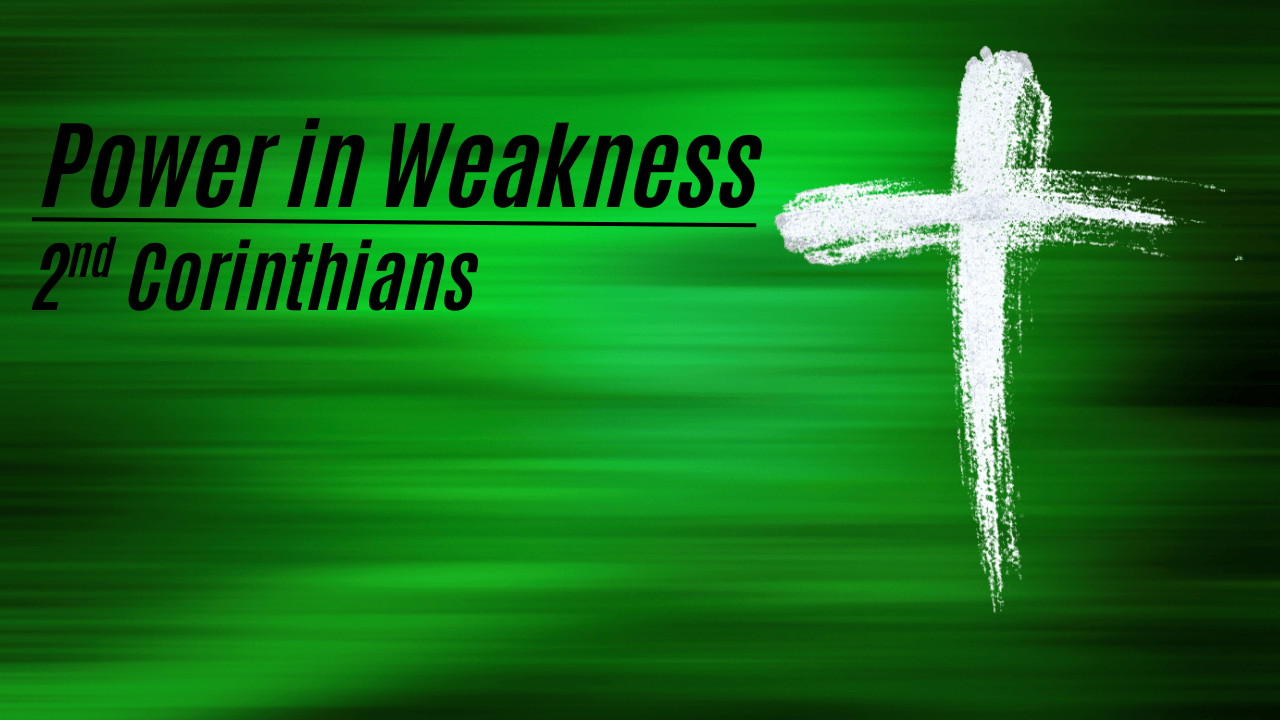
Second Corinthians is Paul’s defense of his love for and love toward the church in Corinth. Paul’s defends his apostolic ministry against critics who question his authority. He recounts profound suffering—beatings, imprisonment, near-death experiences—yet refuses to boast except in his weaknesses. Through personal vulnerability, Paul reveals Christ's power working most effectively in human frailty. He describes his mysterious "thorn in the flesh," where God's response becomes the letter's centerpiece: "My grace is sufficient for you, for my power is made perfect in weakness." Paul embraces this paradox, demonstrating that divine strength flows through broken vessels. His authenticity and struggles validate rather than undermine his ministry, proving that God's power shines brightest through human limitation and dependence.

